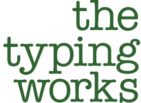Why Transcribing Focus Groups Beats Minute-Taking Every Time
Focus groups are a powerful tool for gathering rich, qualitative insights. Whether used in market research, academic studies, or internal organisational feedback, they offer a window into the thoughts, emotions, and motivations of participants. But how these conversations are recorded and preserved makes all the difference in the value you extract.
While some organisations still rely on minute-taking, the benefits of professional transcription far outweigh this dated method. Here’s why transcribing your focus group discussions should be your go-to approach.
1. Capture the Full Nuance of the Discussion
Minute-taking typically involves summarising key points as they happen, which leaves room for interpretation, omission, and bias. In contrast, a transcript offers a complete, verbatim record, preserving every speaker’s exact words, tone, and flow of conversation.
This is especially important when participants express themselves subtly or emotionally. Sarcasm, hesitation, and enthusiasm often carry meaning that summaries simply can’t capture. A transcript enables you to go back and analyse these nuances in full.
2. Access Powerful Soundbites and Quotations
Whether you’re preparing a client report, academic paper, or internal presentation, quoting participants directly can lend weight and credibility to your findings. Transcripts provide these soundbites word-for-word—something a minute-taker is unlikely to catch in real-time.
Key quotes can also enhance marketing materials, support product development decisions, or help secure stakeholder buy-in.
3. Create a Long-Term, Searchable Archive
Having a textual archive of focus group transcripts means you can return to previous sessions, compare trends over time, or analyse recurring themes. It’s far more practical and reliable than trying to decipher old notebooks or audio recordings.
Transcripts are easy to store, search, and reference—ideal for long-term research, ongoing campaigns, or monitoring shifts in customer sentiment.
4. Ensure Accessibility for Absent Stakeholders
Not everyone involved in a project can be present during the session. Sharing a transcript ensures stakeholders, team members, or clients who couldn’t attend still have full access to the discussion. This is crucial for transparency and inclusivity, especially in academic, public sector, and NGO settings.
Transcripts can also be easily translated or converted into accessible formats, supporting wider access and DEI (Diversity, Equity and Inclusion) initiatives.
5. Support Analysis with Consistency and Accuracy
Unlike minute-taking, which can vary depending on the notetaker’s interpretation or attention span, transcription offers consistency. When performed by a professional transcriptionist, you can expect an accurate and impartial record—critical for research integrity and audit trails.
For teams using qualitative coding software (like NVivo or MAXQDA), transcripts are also easier to import and analyse, speeding up your workflow.
6. Free Up Moderators to Focus on the Discussion
Focus group moderators already have enough to do—guiding the conversation, managing group dynamics, and keeping time. Asking them or a colleague to take minutes can be a distraction. With a recording and transcription in hand, the team can concentrate on engagement, knowing the session will be professionally documented later.
7. Enhance Data Protection and Confidentiality
Using a reputable transcription service means your data is handled according to GDPR and other data protection standards. Minute notes left on desks or in unsecured files pose a much higher risk. Transcripts can be encrypted, password-protected, and anonymised for peace of mind.
Make the Switch to Transcription
In today’s insight-driven world, the value of focus group data lies in the details. Minute-taking has its place in routine meetings, but when it comes to in-depth qualitative research, it simply doesn’t cut it. Transcription offers depth, accuracy, and accessibility—turning spoken insights into a robust resource that’s ready for action.
Want to make the most of your focus group data? Let The Typing Works handle your transcription with speed, confidentiality, and precision. Get in touch today.
